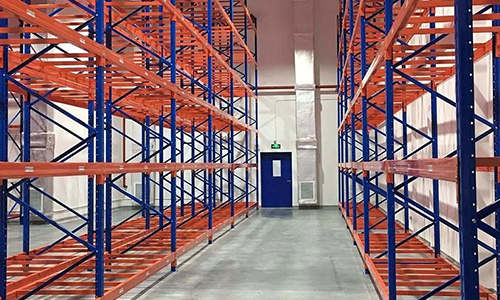When purchasing storage shelves, paying attention to specific parameters and quality standards is crucial to ensure you get a product that meets your needs, is safe, and will last. Here are the key parameters and quality standards to consider:
Material:
Material selection is critical. Common options include steel, aluminum, wood, and plastic. Choose a material based on your storage needs, location, and durability requirements.
Load Capacity:
Each shelving unit has a specified load capacity. Make sure it can support the weight of the items you intend to store. Consider both the per-shelf and total capacity.
Size and Dimensions:
Measure the available space where you plan to install the shelves. Ensure the shelving unit's dimensions fit the space, and the height, width, and depth provide the storage you need.
Adjustability:
Some shelving units offer adjustable shelf heights, allowing you to customize the spacing to accommodate various item sizes. This feature can increase flexibility.
Number of Shelves:
Consider how many shelves you need for your storage requirements. Ensure the unit you choose has the right number of shelves for your items.
Assembly and Installation:
Check if the shelving unit is easy to assemble and install. Look for clear instructions and consider whether you need a wall-mounted or freestanding unit.
Stability and Anchoring:
For freestanding units, consider whether it has adjustable leveling feet for stability. Wall-mounted units should come with sturdy anchors or brackets for secure installation.

Surface Finish and Coating:
The surface finish can affect durability and aesthetics. Look for units with corrosion-resistant coatings or finishes to prevent rust or damage over time.
Certifications and Standards:
Look for shelving units that meet relevant industry standards and certifications, especially if you're using them for specific purposes, such as food storage or industrial use.
Warranty:
Check if the manufacturer offers a warranty, which can provide peace of mind regarding the quality and durability of the shelves.
Durability and Longevity:
Assess the quality of the materials, construction, and overall build of the shelving unit. Sturdy construction and quality materials contribute to longer shelf life.
Safety Standards:
Ensure that the shelving unit complies with safety standards and regulations, especially if you plan to store hazardous materials or if you're using it in a commercial or industrial setting.
Rust Resistance:
If you're using metal shelving in a potentially humid or corrosive environment, look for rust-resistant or galvanized coatings to prevent deterioration.
Weight Distribution:
Pay attention to how the shelving unit distributes weight. It should evenly distribute the load to prevent sagging or deformation.
Adjustability and Accessories:
Some shelving units come with optional accessories such as dividers, bins, or additional components for better organization. Consider whether these features are needed.
User Reviews and Recommendations:
Read user reviews and seek recommendations from others who have purchased the same or similar shelving units to get insights into real-world performance.
Budget:
Consider your budget and try to find a shelving unit that balances cost with quality and features. Keep in mind that a more expensive, durable unit may save you money in the long run.
Manufacturer Reputation:
Research the reputation of the manufacturer. Established and reputable companies tend to produce higher-quality products with better customer support.
By considering these parameters and quality standards when purchasing storage shelves, you can make an informed decision that meets your specific storage needs and ensures you get a durable, safe, and reliable shelving unit. The above is the analysis of storage shelf manufacturers, if you have any questions and needs, you can contact us! We will provide you with satisfactory warehouse and storage solutions.